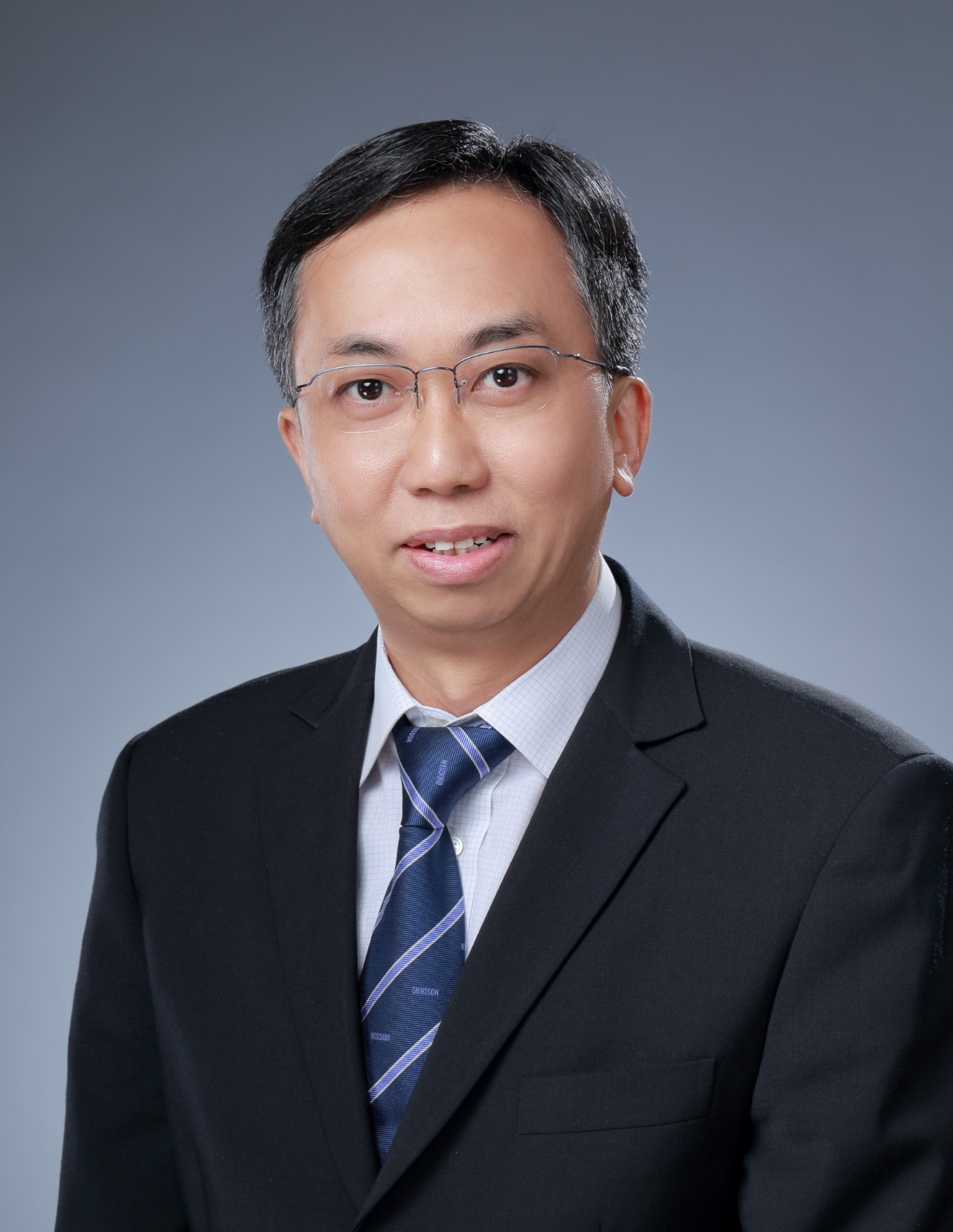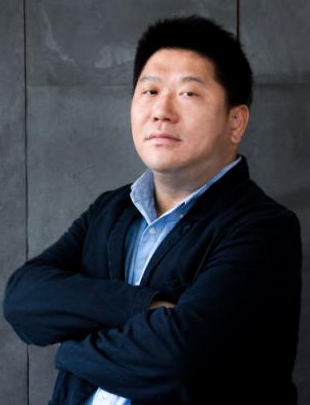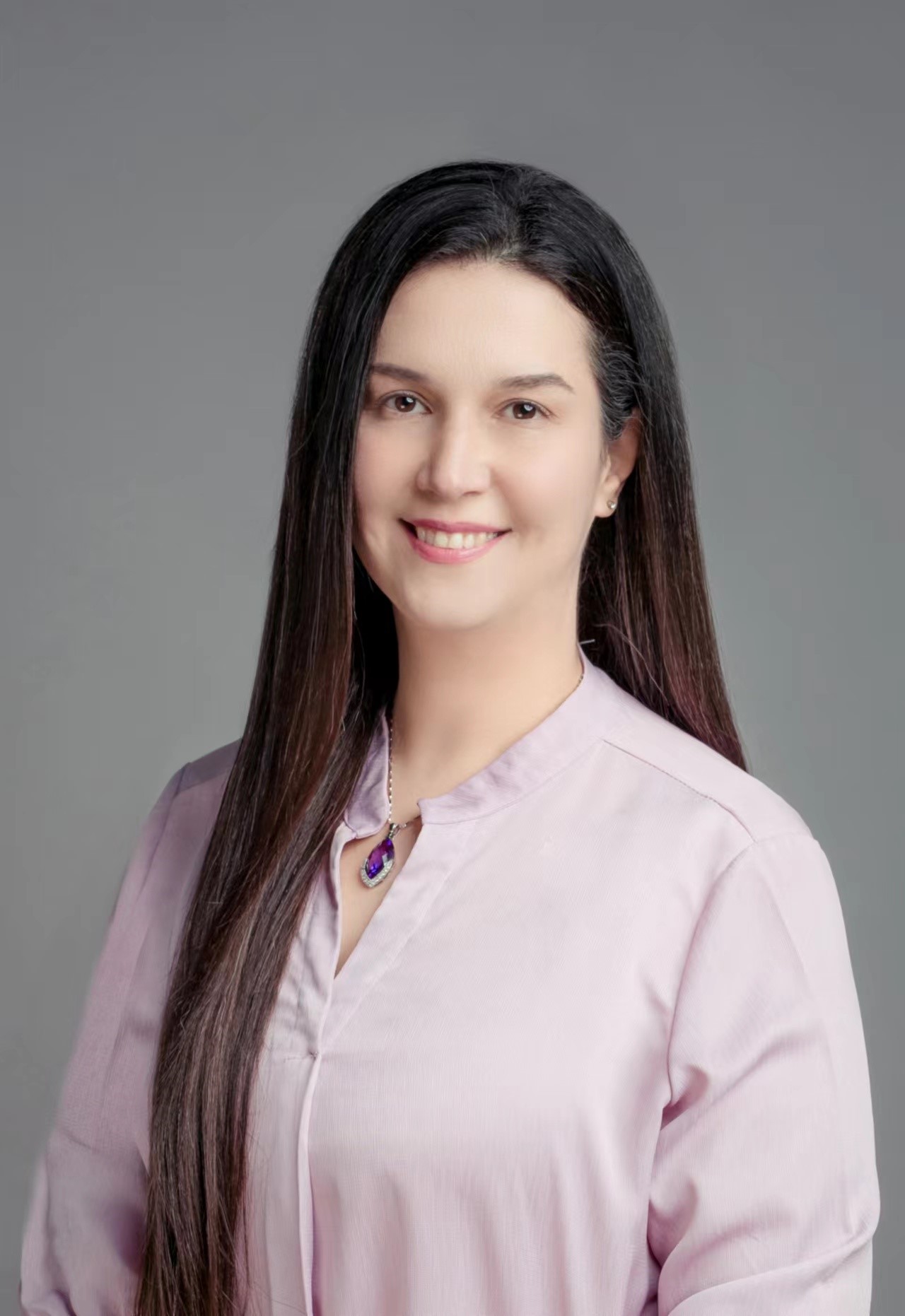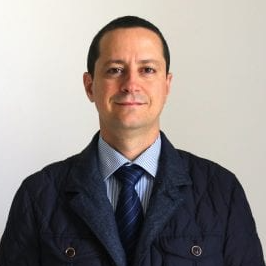Speakers

Prof. Simon K.S. Cheung
Director of Information Technology, Hong Kong Metropolitan University, China
Research Area:Technology in education (open educational resources, blended learning, open learning) software and system engineering (component-based software, distributed processing)
Brief introduction: Dr. Cheung is currently the Director of IT at the Hong Kong Metropolitan University. He received his BSc and PhD in Computer Science and Master of Public Administration from the City University of Hong Kong and the University of Hong Kong respectively. He was admitted as IET fellow, IMA fellow, BCS fellow, CMA fellow, HKIE fellow, and HKCS fellow. Dr. Cheung is active in research, with over 200 publications in the form of books, book chapters, journal articles and conference papers in two distinct areas, namely, software and system engineering, and technology in education. He currently serves in the advisory board and editorial board for a number of international journals, including the International Journal of Educational Technology in Higher Education, Springer (SSCI, Q1), Australasian Journal of Educational Technology (SSCI, Q1), SN Computer Science, Springer (Scopus), Frontiers in Education (Scopus), and Societal Impacts, Elsevier (Science Direct). Awards in recognition of his distinguished achievements in the field include the Outstanding Research Publication Award from the Hong Kong Metropolitan University, First-class Achievement in Computer Science and IT from Shenzhen Science and Technology Association, Outstanding CIO Award from Hong Kong IT Joint Council, and Honour for Excellence, CIO Award from CIO Asia.
Speech Title: Open and Innovative Learning : Trends in Students’ Use of Open Educational Resources
Abstract: Over the past years, owing to the COVID-19 pandemic, teaching and learning have undergone various degrees of transformation to live with different social distancing requirements. Open and innovative learning practices are devised, such as the use of open educational resources or OER. This presentation reports a 4-year longitudinal study on the university students’ use of OER, based on surveys conducted in a university in Hong Kong over the past 5 years which span from the pre-pandemic years to the present new normal era. It is revealed that OER are often used by students for different learning purposes, and are generally perceived to be useful, especially for supplementing the learning materials, and doing assignments and projects. In comparing the result of the current year with the earlier years, there is a significant increasing trend in the frequency of use and the level of perceived usefulness, whilst the concerns about the quality issues of OER, such as on accuracy and comprehensiveness, are more or less similar. Looking forward, the pandemic-driven open and innovative learning seems to be irreversible. Educational practitioners may like to note these radical changes for refining their teaching strategies and pedagogical approaches in the years to come.

Prof. Chunyi, Lin
Fujian University of Technology, China
Research Area: Digital transformation, Cultural and Tourism integration of creative industries, entrepreneurship and innovation management, Consumer behavior
Brief introduction: Chunyi Lin, male, born in Taiwan, China in 1970, Ph.D.; currently a professor of advertising in the School of Humanities of Fujian University of Technology.
He has worked in the Internet-related industry for 25 years, and obtained a doctorate in economic law from China University of Political Science and Law in 2008; in 2017, he obtained a doctorate in business management from the European University Business School in Switzerland.
The main research areas are entrepreneurship and innovation, digital cultural tourism industry, digital consumer behavior, intelligent new media and digital twin of cultural and creative industries.
Published more than 30 academic papers, including three in SCI, one in CPCI, one in the core of Peking University, and nine in EI;
Participated in or presided over a number of projects, including two projects of the Ministry of Education Department of Higher Education Collaborative Education Project, one project of OpenDATA application by Taiwan's economic authority, one project of National Social Science Fund, one project of provincial education reform, and one key project of Baise City, Guangxi item;
He has published six books, authorized four soft-authored works and two invention patents.
Elected as a Fellow of the Royal Society of Arts and Manufactures (RSA), a Fellow of the Royal Economics Society (REs), and a jury member of the 30th Times Magazine Advertising Golden Calf Award,
State-owned enterprise Rongshida University of Entrepreneurship and Innovation Steering Committee and Graduate Mentor, Guest Editor of Finance and Market Journal,
Limkokwing University of Creative Technology, Malaysia, serves as a professor and deputy director of the Graduate Admission Selection Committee, an expert of the expert working group of the Shanghai Technology Brokers Association, and a member of the fresh food e-commerce committee of the Shanghai Online Shopping Association.
Speech Title: Integrating Culture and Tourism: Unveiling the Resilient Scale for Digital Transformation Innovation
Abstract: Ladies and gentlemen, esteemed doctoral candidates and young faculty members, welcome to our academic seminar. Today, we delve into a groundbreaking study that bridges the gap between cultural heritage and the digital frontier. Our 30-minute presentation, "Integrating Culture and Tourism: Unveiling the Resilient Scale for Digital Transformation Innovation," promises to be an enlightening journey into the heart of the digital economy's impact on the cultural tourism sector.
**Research Purpose:**
The purpose of this research is to develop a comprehensive framework that measures the digital transformation within the cultural and tourism industry. We aim to understand how digital tools can enrich the tourist experience while preserving the authenticity of cultural heritage. This study seeks to provide a robust analytical tool for digital innovation and transformation, aligning with the global push towards digital economies.
**Research Motivation:**
Motivated by the rapid digitalization of various industries and the lack of clear guidelines in the cultural tourism sector, this study addresses the need for a structured approach to digital transformation. With the Chinese government's "14th Five-Year Plan" emphasizing the digital economy, this research is timely and crucial for guiding policy implementation and industry practices.
**Theoretical Framework:**
Our theoretical framework is anchored in the Triple Helix theory, which posits a collaborative model involving government, industry, and academia. This model serves as the foundation for examining the integration of digitalization in the cultural and tourism industry. We have also integrated the concepts of digital industrialization, industrial digitalization, digital governance, and data value appreciation to create a multidimensional scale.
**Analytical Process:**
The analytical process involved a rigorous methodology, including a literature review of 3082 samples, expert consultations, and a pre-test questionnaire survey. We employed the modified Delphi me.

Prof. Rasha Khalil
Sichuan International Studies University, China
Research Area: Cultural studies, Fine Arts, International Law, Intellectual Property Law, International Economic Law, Leadership and Innovation, Orgnizational Behaviour.
Brief introduction: Rasha Khalil, Ph.D., Professor, inventor, researcher and artist, Sichuan International Studies University. He has won the World Intellectual Property Organization Invention Medal, the Kent Natural Resources International Foundation Award, and the 2020 Light of Civilization and China Cultural Exchange Person of the Year. He is proficient in management and legal consulting, and has conducted a number of studies in cultural comparison and environmental protection. He has published dozens of academic papers, some of which have been published by Yale University Press. In addition, he has been a keynote speaker and chair of several international conferences at home and abroad.
Speech Title: "Exploring Cultural Identity through Fine Arts: A Global Perspective"
Abstract: "Exploring Cultural Identity through Fine Arts: A Global Perspective" delves into the intricate intersection of fine arts and cultural identity across diverse societies worldwide. Spanning from ancient civilizations to modern times, this article illuminates how artistic expressions serve as vital reflections of cultural heritage, values, and experiences. Through case studies spanning Africa, Asia, indigenous communities, and Europe, it underscores the universality of the human quest for identity and belonging. Furthermore, it critically examines contemporary challenges such as cultural appropriation and the impact of globalization on artistic traditions. Ultimately, it advocates for fostering cross-cultural dialogue and understanding through the appreciation of diverse artistic narratives.

Assoc. Professor Gabriel Antunes de Araujo
Universidade de Macau, Macau, China
Research Area: Linguistics, Linguistics Typology, Anthropological Linguistics, Language documentation and conservation, Language Policy, Phonology, Sociolinguistics, Historical Linguistics, Second Language Acquisition
Brief introduction: I teach Portuguese Linguistics. My primary research interests are General Linguistics, language documentation and conservation, Generative Linguistics, Brazilian Portuguese, transplanted Portuguese (in Africa, Asia, and Brazil), Portuguese-based creole languages, contact languages, phonology, morphology, Brazilian languages, and Sociolinguistics.
Speech Title: Some Remarks on the first Portuguese-Chinese Dictionary
Abstract: The Portuguese-Chinese Dictionary (?1579-1586), the first of its kind between a European and a Chinese language, is a milestone in the history of lexicography. The dictionary manuscript was found in 1934 by D’Elia in the Jesuit Archives in Rome and published in 2001 in a facsimile edition (Ruggieri & Ricci, 2001). In this talk, as we intend to cover a gap in the literature, we aim to discuss the order of writing (Portuguese entries, romanisation, Chinese characters, Italian additions, and further revision) in the compilation of the dictionary. We will also highlight the lexicographic work of its leading author, Michele Ruggieri SJ (Zhu & Araujo, 2024). We show that on folios A to C, a clerk wrote the Portuguese entries beforehand, based on Jerônimo Cardoso’s Portuguese-Latin Dictionary (1569). Then, Ruggieri coordinated the writing of the Chinese equivalents and wrote his phonetic interpretations of these Chinese words. Later, a fourth column (with Italian words) was added to the manuscript. In section A-C, Ruggieri assumed that there would be a Chinese correspondent for each word listed in Cardoso’s dictionary (1569). However, data collection and comparing lexical items from Portuguese and Chinese led him to abandon the list he had prepared beforehand. He then opted for a more pragmatic approach and abandoned finding a Chinese equivalent to each entry in Cardoso’s dictionary. Thus, in section D-Z, he changed his approach: a Portuguese entry was only written when the Chinese collaborators offered an equivalent. Nevertheless, at this moment, he created the first romanisation of the Chinese pronunciation. Of course, this task required changing the order of writing. Then, Ruggieri first registered the entry, followed by the phonetic transcription given by his Chinese collaborators. Afterwards, he asked his Chinese collaborators to write down the words in Chinese. In this sense, Ruggieri made decisions to improve the use of all resources available. Zhu & Araujo (2024) have claimed that at least five agents worked on the dictionary. Assuming Ruggieri was agent 2, we, therefore, propose the following writing order:
(1)Writing order
a. A-C Section
Portuguese(agent 1) > Chinese(agents 3/4/5) > romanisation(agent 2) > Italian(agent 2) > revision(agent 2)
b. D-Z Section
Portuguese(agent 2) > romanisation (agent 2) > Chinese(agents 3/4/5) > revision(agent 2)
Although the manuscript was unfinished and never published, it reveals Ruggieri’s evolution as a lexicographer and a modus operandi that would influence later Jesuit romanisation practices in the Far East, such as Ricci, Fernades & Cattaneo (1598-1599 (lost)) and Trigault SJ (1957 [1626]).


